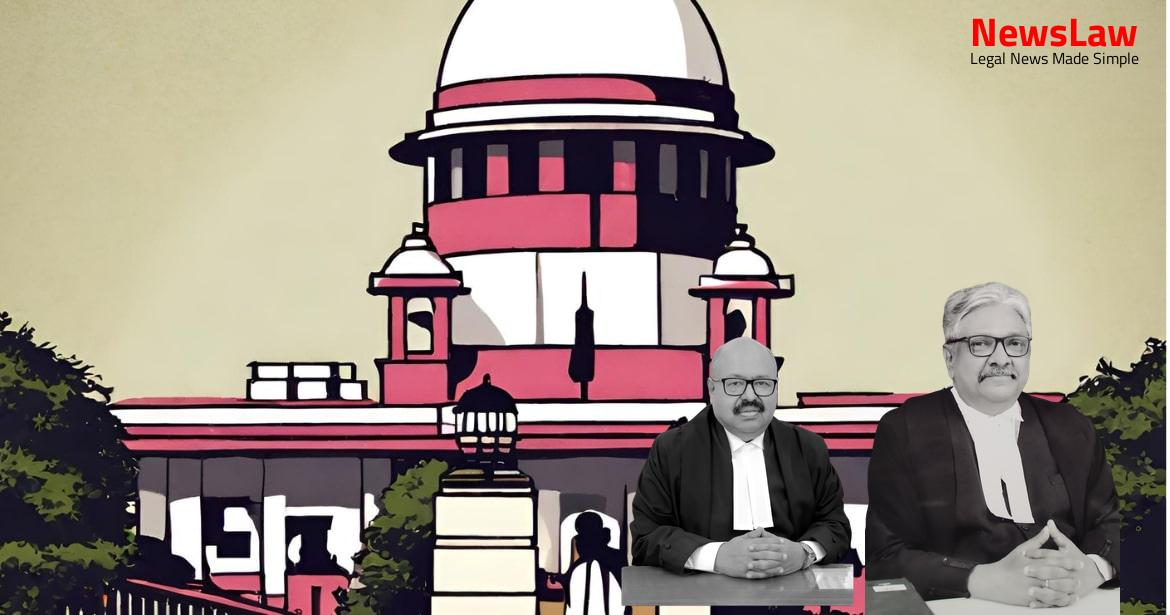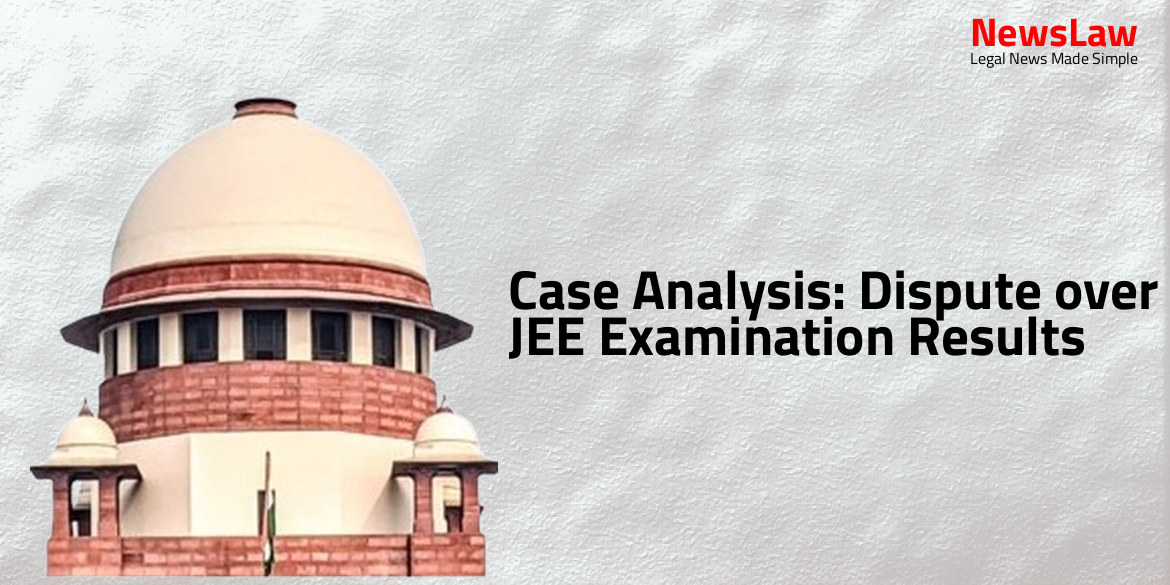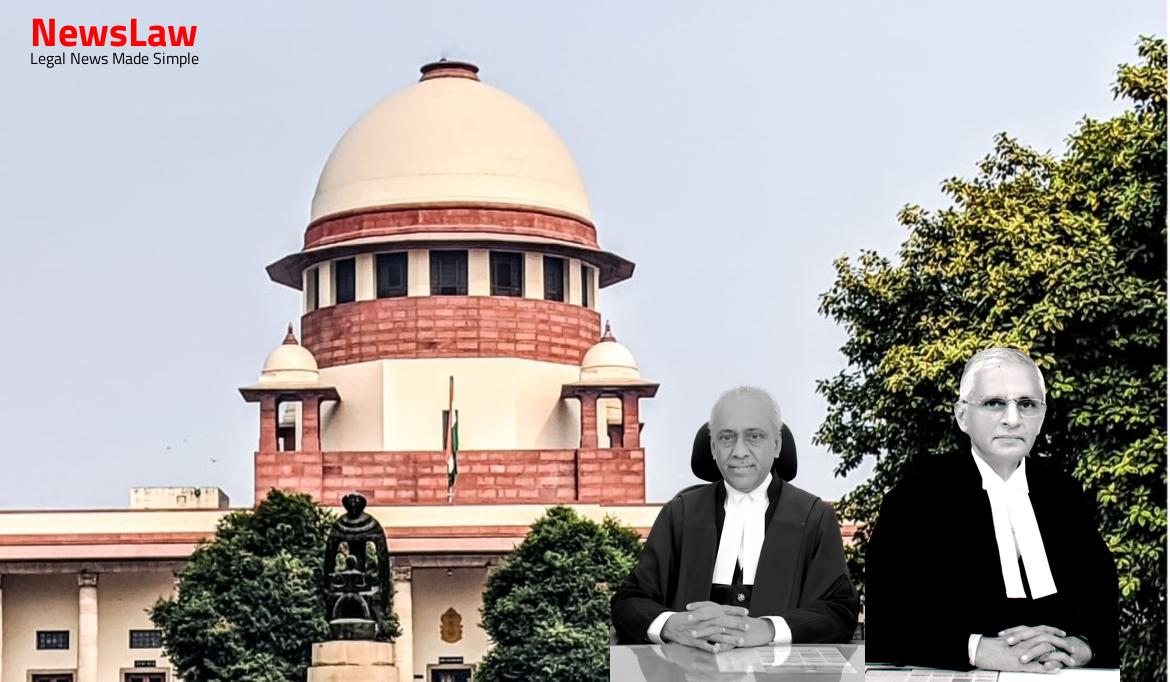Explore a fascinating legal analysis focusing on the intricate interpretation of recruitment rules by the court. The case delves into the application of specific regulations governing appointments, providing valuable insights into the legal framework. Stay tuned to unravel the complexities behind the court’s decision.
Facts
- Recruitment for LDC position started again and the applicant was within the cutoff merit.
- Applicant possessed RSCIT Certificate qualified on 10th November 2014 for the LDC recruitment.
- An extension was given for the production of RSCIT certificate till the application submission date.
- The respondent filed an application on 27.08.2017 requesting inclusion in the document verification for LDC Recruitment 2013.
- The application was disapproved in the meeting of the District Establishment Committee on 01.09.2017.
- Rejection of the application was due to not possessing RSCIT certificate within the extended period.
- Litigation stalled the recruitment process after the respondent obtained the RSCIT qualification on 10.11.2014.
- An advertisement in 2017 required eligible candidates to be personally present for document verification.
- Candidate cutoff marks were specified for different categories in the LDC Recruitment 2013.
- The writ petition filed by the respondent was allowed by the learned Single Judge, leading to the present appeal.
- The Single Judge’s decision was supported by a High Court Division Bench judgment dated 11.02.2016.
- The respondent had acquired all the qualifications as per the Rules and advertisement.
- The respondent did not possess the RSCIT certificate on the last date of examination.
- The respondent cannot be denied consideration under the widow category for this reason.
- The respondent was found entitled to be considered for appointment based on merit and educational qualifications, including RSCIT acquired later.
- The application under Article 226(3) of the Constitution was dismissed, and the interim order was made absolute.
- The writ petition was allowed in favor of the respondent.
Also Read: Judicial Analysis on Back Wages in Employee Caste Verification Case
Arguments
- The judgment of the 5 Division Bench may not be relevant for the respondent’s case.
- This Court is a Constitutional Court, and the respondent’s rights stem from Article 15 of the Constitution.
- Not a case for interference in the special jurisdiction under Article 136.
- Arguments presented by both the counsel – Shri Sushil Kumar Singh for the appellants and Mr. Prakash Kumar Singh for the respondent.
- The respondent possessed the required qualification for the recruitment after 2017.
- The respondent is a widow who has been suffering since 2013.
- The respondent had marks exceeding the cut off prescribed for the category.
- The respondent acquired the necessary qualification by the time the advertisement was issued in 2017.
- The respondent did not have the stipulated qualification by the last date for application, as per the appellants’ case.
- Litigation caused a delay in the recruitment process initiated in 2013, which was resumed in 2017.
- The issuance of the advertisement in 2017 granted the respondent certain rights.
- The respondent was not appointed in a manner falling under Rule 266-A.
- The decision was based on Rule 266-A of the Rajasthan Panchayati Raj Rules, 1996, by the learned Single Judge.
Also Read: Interpretation of Suspension Rules in Employment Case
Analysis
- The Court was concerned with the application made by the respondent in response to an advertisement issued in 2013 for the post of Clerk.
- The Division Bench upheld the validity of Rule 16.
- The Court agreed with the direction given to the petitioners to represent their grievances before the Government for relaxation in experience for widow/divorcee candidates.
- Rule 266-A does not deal with the qualification of RSCIT, which was a point of contention raised by the respondent.
- The Court granted liberty to petitioners to represent to the State Government for relaxation of one year of experience for widow/divorcee candidates.
- The advertisement issued in 2017 was a continuation of the recruitment process from 2013 for candidates who had acquired eligibility by then.
- The essential requirement for application under Rule 266-A is the appointment of widow/divorcee candidates, which the respondent did not fulfill.
- The judgment discussed the applicability of Rule 266-A to the post of LDC and the appointment criteria for teachers under the rule.
- The respondent failed to meet the necessary qualification of RSCIT, as required by the rule.
- The respondent’s application was rejected by the Committee for not possessing the required qualification.
- Article 136 is a special and extraordinary jurisdiction, but clear evidence of respondent not meeting required qualifications means court cannot direct appointment.
- Contentions of respondent for sympathetic view due to being a widow and Constitutional Court are not acceptable.
- The duty of a constitutional court is to uphold actions in strict conformity with the rules.
- Interference with the impugned judgment is justified as appellants have made a strong case.
- The impugned judgment should be overturned as it would be illegal and unconstitutional.
- Sympathy from the court for the respondent cannot override the law governing appointments.
- The respondent was not eligible for consideration for appointment, making the appointment ineligible.
Also Read: Legal Analysis of Assignment and Ratification in Property Law
Decision
- The appeal has been allowed.
- The impugned judgment has been set aside.
- No costs have been ordered.
- The writ petition has been dismissed.
Case Title: THE STATE OF RAJASTHAN Vs. ANJU RINI SAINI (2022 INSC 137)
Case Number: C.A. No.-000872-000872 / 2022



